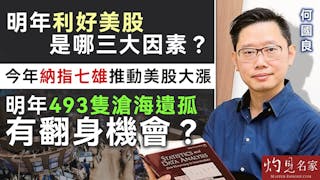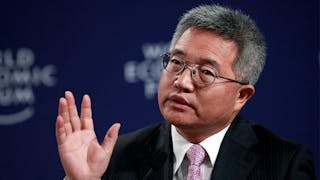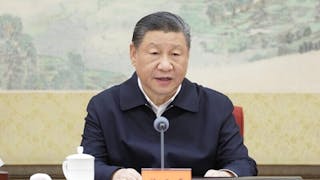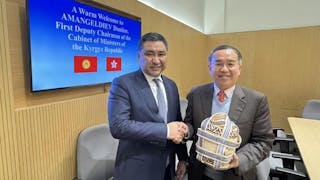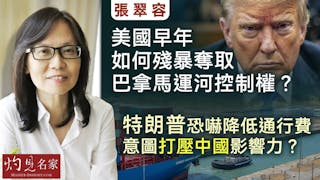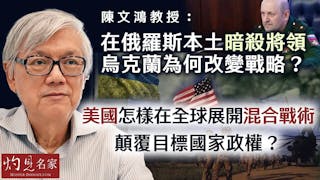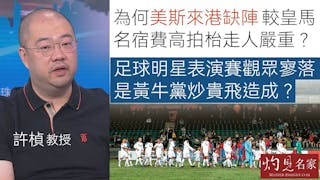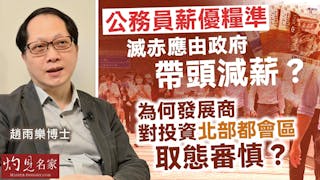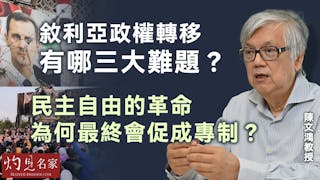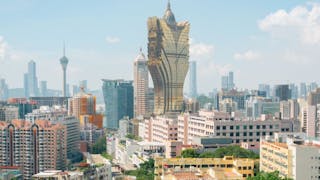9月26日,中共中央政治局會議決定加大刺激內地經濟的力度,包括實施大幅減息降準、促進房地產市場穩定等措施,決定不僅對內地經濟發展產生立竿見影的影響,亦立時影響香港和澳門的經濟發展。
緊接着政治局會議的翌日,央行宣布下調金融機構存款準備率0.5個百分點,下調7天逆回購利率20個基點,加大對經濟穩健運作的政策支持力度。
據新華社報道,此次同步下調存準率和基本政策利率,體現了央行堅持「力度更大、監管更有針對性」的支持性貨幣政策的決心,也體現了央行為幫助國家完成全年重大任務所作出的實際努力,又強調中國經濟的基本面、廣闊的市場規模、強大的經濟韌性、和潛力優厚等有利條件並未改變。
衡量9月數據 維持全年5%增長目標或有難度
顯然,中國政府最近審視了各種統計數據後,認為要維持每年5%經濟增長目標,政府有必要介入,特別是在今年是中華人民共和國成立75周年之際。無論從政治或經濟的角度看,政府在10月1日之前及時對經濟作出干預,變相提振實體經濟。
新華社又稱,政治局會議需要「要全面客觀冷靜看待當前經濟形勢,正視困難、堅定信心」。值得留意的是,此番言論的基調積極,突顯政府刺激經濟的信心和決心。
政治局會議是在9月25日發布的一系列指導性方針下作出加大刺激經濟的決定,指導方針旨在促進高素質就業、提高勞動報酬、擴大社會保險覆蓋率,可以被視為支撐經濟的安全閥。預計政府對經濟和社會保障的介入,有望中短期內提振經濟表現。
具體來說,在逆回購7日降息後,貸款利率將有可能下調,這不僅會降低企業融資成本,還會減輕一般民眾的房貸供款負擔。當存量貸款利率下調和二套房最低首付比例下調落實後,居民的房貸供款負擔亦有望緩解,從而刺激住房需求,帶動房地產市場回暖。
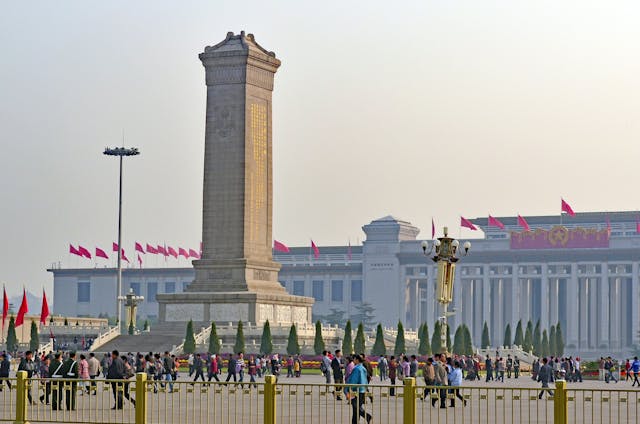
選擇9月開經濟工作會議 時機「異乎尋常」
政治局會議選擇9月舉行,時機可以說「異乎尋常」,因為每年的中國經濟工作會議通常會於4月底、7月底及12月中舉行,但如果9月中旬的經濟數據看起來並不友好,那麼政治局在9月下旬召開會議,「針對當前經濟形勢和工作」進行分析研究便順理成章。
由於9月數據顯示內地經濟表現疲軟,GDP年增長率要達到5%目標的難度很大,政府有必要進行更多刺激手段。根據國家統計局公布數據,7至8月工業增加值增長放緩0.6%。此外,民間投資出現負數,房地產市場快速萎縮,房地產開發投資下降10.2%。 8月份消費額僅增加2.1%,甚至低於7月2.7%的增幅。
事實上,今年前8個月的投資數據也不樂觀:儘管製造業維持了9.1%的成長,但基建投資仍持續下降至4.4%,其中房地產投資降幅最大。外商投資也下降17.7%。二手房價格方面,8月份,北京下降8.5%,上海下降5.8%,廣州下降12.5%,深圳下降10.8%。此外,介乎16歲至24歲的年輕人失業率較7月上升1.7個百分點,8月達到18.8%,這數字或許反映出對社會穩定和就業需求的擔憂,有需要迅速採取行動。
今年第一季中國經濟增長達5.3%,但第二季僅為4.7%。有觀察家預測,第三季增速可能錄得4.5%至4.8%間,這意味著,如果政府不及時果斷干預,特別是考慮到房地產市場的下滑,中國將很難實現5%的增長。
中國社會主義特色 政府會適時作出干預
中國社會主義制度的特徵往往是政府對經濟和社會進行堅決和及時的干預,這一共通點可能令一些外國觀察家感到驚訝。然而,在社會主義制度下,政府作出干預時會表現出家長式作風,特別是當確認時機成熟時,它會在宏觀層面毅然作出調整,所以9月26日的政治局會議可以被視為社會主義果斷的表現。
中央政府加大對經濟的干預力度,立即刺激港股大漲,連續4天成交量創歷史新高,重上20000點關口。預計相關措施短期內可能刺激更多內地人到香港和澳門旅遊和消費,特別是在10月初中國國慶節前後的黃金周假期。澳門與橫琴的深度合作區可能會受益。如果澳門橫琴合作區出現債券市場,中短期內地企業的投資更有望擴大。
中國經濟低迷的原因是疫情消退後房地產市場、國內投資和社會消費的穩定下滑。為提振經濟和維護穩定社會,黨和政治領導層適時果斷加大干預經濟力度,不僅提振了內地經濟,也提振了社會信心。此舉代表關鍵的宏觀經濟干預,已成為中國社會主義制度的標誌,對股市飆升的香港和內地遊客預計會增加消費和消費的澳門產生積極影響。澳門橫琴合作區可能會受益於內地對其債券市場投資的增加。
Government intervention in the Chinese economy and its implications
A move made by a meeting of the Politburo of the Communist Party of China (CPC) on September 26 has led to forceful governmental intervention in the mainland economy, with immediate implications for the economic development of not only the mainland but also the Hong Kong and Macau Special Administrative Regions (SARs).
The Politburo meeting on September 26, 2024, called for intensified efforts in economic work, including the implementation of substantial interest rate cuts and the promotion of the property market’s stabilization.
On September 27, the central bank cut the reserve requirement ratio (RRR) for financial institutions by 0.5 percentage points and lowered the seven-day reverse repo interest rate by 20 basis points, thereby enhancing policy support for solid economic operations (Xinhua, September 27, 2024).
According to Xinhua, the simultaneous cuts to the RRR and policy rate reflect the determination of the central bank to stick to a “supportive monetary policy with strengthened intensity and more targeted regulations”, as well as its concrete efforts to help the country meet major annual economic and social development targets.
Obviously, the central authorities reviewed various statistics recently and decided that government intervention is a must to maintain the annual economic growth rate of 5 percent, especially as the year 2024 represents the 75th anniversary of the People’s Republic of China. Politically and economically, a swift governmental intervention in the economy days before October 1, 2024, was timely and represents a substantial boost to economic performance.
According to the People’s Bank of China on September 27, the weighted average RRR for lenders will be approximately 6.6 percent, but those that had already implemented a 5 percent RRR will not be involved. The move followed an RRR cut of 0.5 percentage points in February. The one-percentage-point RRR reduction is expected to provide 2 trillion yuan (about US$285 billion) in long-term liquidity for the financial market.
The central bank has also lowered the seven-day reverse repo interest rate from 1.7 percent to 1.5 percent – reportedly the largest decrease in four years. The aim is to intensify the counter-cyclical adjustment of China’s monetary policy and support its stable economic growth. The seven-day reverse repo interest rate has decreased by a cumulative 30 basis points in 2024.
The Xinhua report on September 27 said that the Chinese economy remains favorable in its conditions, including having “a vast market” with “strong economic resilience” and “great potential”.
However, the Politburo meeting, according to Xinhua, needs to adopt a “comprehensive, objective and sober view of the current economic situation, face the difficulties squarely, and remain confident”. The overall tone is positive, but the confidence and determination of government intervention are obvious.
The Politburo meeting’s decisions were precipitated by a set of guidelines that had already been issued on September 25 to promote high-quality employment, increase the remuneration for labour, and expand the coverage of social insurance – measures that could be seen as safety valves to buttress social stability.
It is expected that government intervention in the economy and society, especially in its fiscal policy support and enhanced social policy measures, will envisage an economic rebound in the short and medium term. Specifically, the loan prime rates will likely be lowered following the seven-day reverse repo interest rate cut, which will reduce not only the financing costs of enterprises but also the housing burden encountered by ordinary citizens. When the decreased mortgage rates on existing home loans and the reduced minimum down payment ratio for second homes become effective, the burden of residential mortgages will likely be relieved, thereby boosting the demand for housing and leading to the recovery of the real estate market (Xinhua, September 27, 2024).
The necessity for more government intervention came amid the arrival of figures that pointed to a declining economy in the mainland. On September 14, the Ministry of National Statistics revealed that the increase in industrial value slowed down by 0.6 percent from July to August. Moreover, civilian investment showed negative figures, while the property market was shrinking rapidly with a decrease of 10.2 percent in new property investment. The consumption amount increased by only 2.1 percent in August, a figure even smaller than the 2.7 percent rise in July. All the figures pointed to the difficulties in reaching a 5 percent annual growth rate in GDP.
Usually, China’s economic work meetings are held in late April, late July and mid-December. The late April economic work meeting aims at preparing for economic arrangements and policy implementation after the meetings of the National People’s Congress (NPC) and the Chinese People’s Political Consultative Conference. The meeting in late July aims at preparing and coordinating economic work for the latter half of the year annually. The mid-December meeting aims at setting the economic directions for the next year.
This time, the Politburo meeting in September could be regarded as “unusual”, but if the statistical figures on the economy did not look good in mid-September, it is understandable why the Politburo, in its late September meeting, analyzed and studied “the current economic situation and economic work” and, most importantly, made decisions to address the problems identified.
It was reported that in the first quarter of 2024, the Chinese economy reached a 5.3 percent growth rate, but the second quarter managed only 4.7 percent. Some observers predicted that the third quarter might reach around 4.5 percent to 4.8 percent, meaning that it would be difficult for China to achieve the 5 percent growth rate if the government did not intervene timely and decisively, especially considering the decline in the property market, consumption, stocks, and asset values. As such, in a socialist system like China, governmental intervention through the important Politburo meeting in late September was necessary.
It was reported that, in the scope of social consumption during August 2024, the decline was quite prominent in the areas of vehicles (down by 7.3 percent), construction and renovation materials (down by 6.7 percent), furniture (down by 3.7 percent), gold and jewelry (down by 12 percent), cosmetics (down by 6.1 percent), and clothing, shoes, and hats (down by 1.6 percent). All these declines reflected a sluggish economy with a reluctance among residents to spend money.
The investment figures also did not look good in the first eight months of 2024: although the manufacturing sector maintained a 9.1 percent increase, the investment in infrastructure continued to decrease to 4.4 percent, while the biggest drop could be seen in property investment with a negative figure of -10.2 percent. Investment from foreign business enterprises also dropped by 17.7 percent. Regarding second-hand property prices, in August there was a drop of 8.5 percent in Beijing, 5.8 percent in Shanghai, 12.5 percent in Guangzhou, and 10.8 percent in Shenzhen.
On September 20, the Ministry of National Statistics also showed that the unemployment figure for the age group from 16 to 24 years old increased by 1.7 percent from July, reaching 18.8 percent in August – perhaps a figure pointing to concerns over social stability and the need for swift governmental action to prop up the economy and stabilize society quickly.
China’s socialist system has often been characterized by decisive and timely governmental intervention in the economy and society – a common feature that may have surprised some foreign observers. However, such “sudden” intervention is arguably normal in a socialist system in which the government is expected to be not only paternalistic but also very decisive in making macro-level adjustments at the ripe time identified by the concerned economic policymakers. If the ruling party has been playing an increasingly important role in directing the State Council and its government departments to govern the economy and society, the so-called “unusual” meeting of the Politburo on September 26 could be seen as a demonstration of decisive socialist political leadership in economic governance.
It can be recalled that in 2008, the government under former Chinese Premier Wen Jiabao injected four trillion yuan to stimulate the Chinese economy after the global financial crisis. As such, the September 2024 decision made by the Politburo to intervene in the Chinese economy might be seen as a socialist move in response to the post-Covid economic decline of China – a phenomenon that is currently being seen in many other countries after the fading of Covid-19 and its variants two years ago. The post-Covid Chinese economic atmosphere might also have been affected to some extent by the unfortunate difficulties of the Evergrande Group in its property development and the emergence of its liquidity crisis in 2021 and 2022.
The September 26 meeting of the Politburo, according to Xinhua, called for CPC members and officials to “take responsibility and be willing to innovate, using challenges as opportunities to grow and achieve results.” It seems that some party officials and cadres have become over-cautious and over-conservative, becoming afraid of making mistakes in the process of implementing reforms. In 2020, the CPC’s Central Committee called on party members and officials to take the initiative in implementing reforms. Indeed, being bolder in implementing reforms is easier said than done; it remains to be seen how party officials and cadres perform in the process of reforms that require more effective governmental intervention in the economy.
The central government’s increasing intervention in the economy has immediately stimulated a jump in the Hong Kong Hang Seng Index, which witnessed a surge in record trading volume consecutively for the last four days, reclaiming the 20,000-point floor. The transaction record surged to HK$225 billion. It is expected that government intervention in the Chinese economy will likely stimulate more mainlanders to visit and spend their money in Hong Kong and Macau in the short run, especially during the Golden Week around the National Day of China in early October. Macau’s in-depth cooperation zone with Hengqin will likely benefit from the mainland’s government intervention and stimulus package. If the bonds market emerges in the Macau-Hengqin cooperation zone, investment from mainland companies will likely expand in the short and medium term.
In conclusion, the Politburo meeting on September 26 was a testimony to the decisive economic leadership of the central authorities in response to a sluggish mainland economy after the end of Covid-19. The sluggish economy was attributable to the steady decline in the property market, domestic investment, and social consumption after the fading of Covid-19. To boost the economy and stabilize society amid unfavorable economic figures and related social employment challenges, the Party and its political leadership made a decisive move to intervene more in the economy at the right time, boosting not only the mainland economy but also societal confidence. The move represents a pivotal macro-level economic intervention that has become the hallmark of the socialist system in China, with positive implications for Hong Kong, where the stock market has surged, and for Macau, where mainland visitors are expected to increase their consumption and expenditure in the coming months, and where the Macau-Hengqin cooperation zone will likely benefit from increased mainland investment in its bonds market.
原刊於澳門新聞通訊社(MNA)網站,本社獲作者授權轉載。(原文按此)






